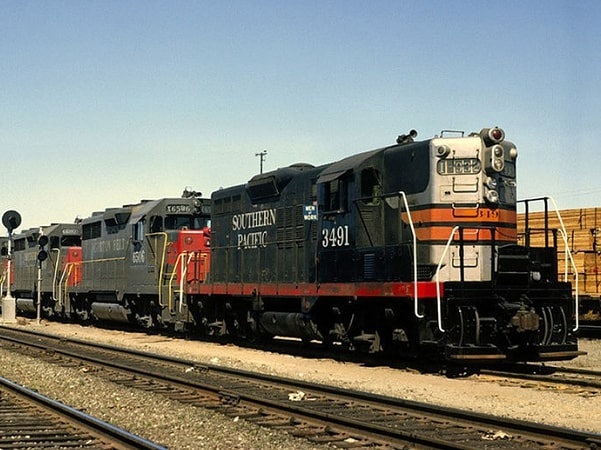Introduction: In this article, Gena Philibert-Ortega shows how she found newspaper articles about her grandfather, even though he was not mentioned by name in any of the articles. Gena is a genealogist and author of the book “From the Family Kitchen.”
Let’s face it, sometimes finding what you hope to find in old newspapers just doesn’t happen. It may seem that your ancestor never appeared in the newspaper – or if they did, you’re not finding it.
That’s ok. Newspaper articles relevant to our ancestors’ stories aren’t just the ones that have their name. Sometimes, you can find newspaper articles that describe their circumstances and the experiences they went through – that tell you more about your ancestor’s life – without mentioning them by name.
Here’s one example using my paternal grandfather Leo J. Philibert.

Where Is He?!
As I started researching my grandfather, I first came up with all of his name variations. They included:
- Leo Philibert
- Leo J Philibert
- LJ Philibert
- Philibert
When I searched on these name variations, I did get hits – but when I narrowed the search to California (the only place he lived), I had no relevant hits.
So that’s it, right?
Well, not yet. I can continue my search by not narrowing the location. I can try to find him in articles dealing with other family members. I can try “creative spellings” or wildcards to find articles with his name (after all, Philibert could be spelled in any number of ways).
But the other thing I can do is consider what he was involved with during his life, such as an occupation, historical event, or an organization, and search on those keywords.
Not Searching by a Name
Most likely you only search GenealogyBank by an ancestor’s name. After all, we are looking for specific ancestors. But there is more than one way to search for newspaper articles. Let’s take a minute to discuss how searching by a name is different than searching by a keyword.
Typically, when you search GenealogyBank you start your search with the Simple or Advanced Search page and enter an ancestor’s name only (in the case of the Simple Search), or a name and other descriptors like a date or place (in the case of the Advanced Search).
If you want to search for an organization, a company, etc., use the Keywords box in the Advanced Search page. You may be wondering, “What is a keyword?” A keyword or keywords is/are really any words that will describe that ancestor’s religion, occupation, company employed by, organization a member of, historical event or natural disaster they experienced, etc.
For example, “railroad,” “earthquake,” and/or “Southern Pacific” are keywords I used in my search for information about my paternal grandfather’s life.
You’ll want to enter the word or words you want to search for in the first Keyword box that says “Include these keywords.”
Southern Pacific Railroad
My grandfather was an engineer for the Southern Pacific Railroad. Although he may not be specifically named in a newspaper article, I can learn more about his life by conducting a search for the company he worked for.
An initial search for the keywords Southern Pacific and the state California brought up over a million results! I decided to redo my search by using an exact phrase search “Southern Pacific” and adding a date range, 1950-1986, as well as a place, California. (An exact phrase search is when you add quotation marks to the keywords you are searching. This ensures that your results include that exact phrase.)
Those changes brought my results list down to a more reasonable number, and I was able to start looking at what was relevant. I also took some time to narrow the search by individual cities in Southern California, where he lived and worked.
What did I find? Plenty of articles in this time period gave me a look at the railroad as my grandfather knew it. For example, I found an advertisement with the type of engine my grandfather operated.
Several newspapers in the area where he worked had articles about Southern Pacific Railroad history. These articles can help me better explain my grandfather’s place in that history to his descendants.
I also found articles about the train yards where he worked. In this case, there’s a nice description of the Indio (Riverside County, California) train yard and a reminder to me as a researcher that there’s more than one way to search for “Southern Pacific”: I should also try SP.
He’s Not There Yet…
No, my grandfather does not seem to be in GenealogyBank’s Historical Newspaper Archives, yet. However, his employer is and those articles can help me piece together his work life. It’s important to also remember that with the additions GenealogyBank makes to its newspaper collection each month, I need to keep checking back for articles that mention my grandfather by name – chances are that future additions may have him.
What have you found about your ancestor’s life on GenealogyBank?
Note on the header image: a photo of locomotive SP 3491, in the Black Widow scheme, leading locomotive SP 6506, in the Bloody Nose scheme, April 1966. Credit: Drew Jacksich; Wikimedia Commons.
